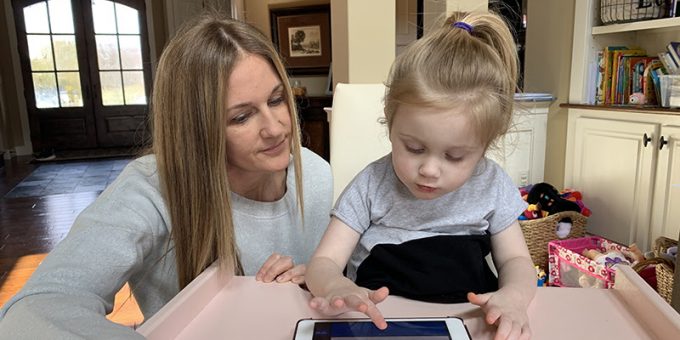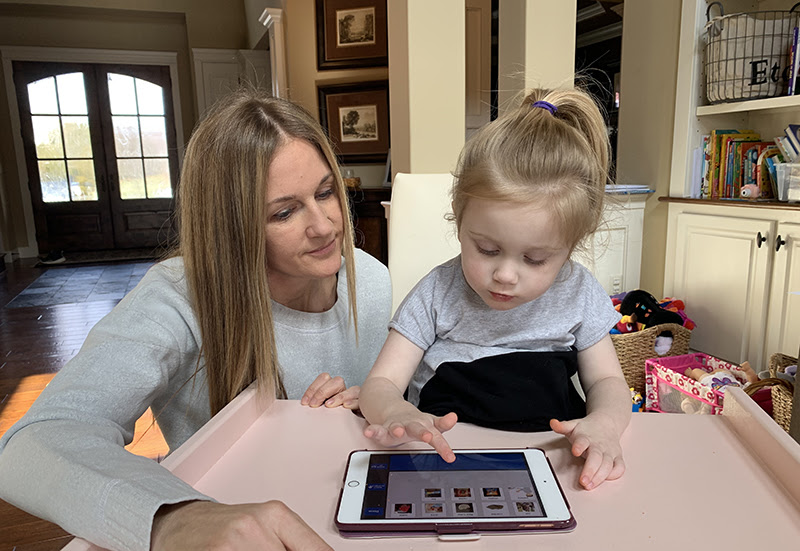
WEST LAFAYETTE – Purdue University technology to assist nonverbal children on the autism spectrum is helping families around the world during the COVID-19 pandemic, which has forced schools and clinics to rely more on remote options.
The award-winning SPEAKall! application functions as a smart device communication board and language learning platform that teaches students to associate words and images.

In the application, students choose digital cards and move them to the speech bar, then the application reads the sequence aloud word by word. Hearing how the words sound can encourages the autistic learner to make an attempt at saying the word with his or her own voice.
Users, caregivers and clinicians can upload their own photos or images into the application and pair it with pre-recorded or iPad-generated speech to personalize the program for each learner’s individual needs.
It is estimated that up to 50% of the over 2 million individuals on the autism spectrum are initially nonverbal or minimally verbal and need augmentative communication technology such as SPEAKall! to meet daily communication needs.
“It has been heartwarming and rewarding to see how our technology is helping to develop better speech and language and provide a much-needed resource during this pandemic that has deprived many families affected by autism of proper therapeutic services,” said technology inventor Oliver Wendt, professor and chair of cognitive and emotional disabilities at the University of Potsdam, Germany, who created SPEAKall! in his former Purdue research lab in the departments of Speech, Language, and Hearing Sciences, and Educational Studies. “The COVID-19 lockdowns across the world have shifted therapy to telehealth platforms, which can be challenging for nonverbal autistic children and their parents.
“Especially young children on the autism spectrum often experience an intense disruption in services, which can lead to worsening autism symptoms and increased family distress. It is marvelous when parents can be trained to use proper technology such as SPEAKall! and continue therapy during and after remote sessions. Thus, we can ameliorate some of the COVID-19 impact.”
The technology has received international recognition for moving speech-language pathology’s traditional communication boards onto mobile devices. A first prototype was developed through a collaboration with Purdue’s EPICS program. Later technology development was supported by a National Institute on Deafness and Other Communication Disorders grant, an AWS Foundation grant, the Purdue Trask Innovation Fund, and a Kontos Faculty Fellowship from the Purdue Center for Families, among others.
“We are extremely thankful to be using the SPEAKall! technology,” said Noel Nyquist, the parent of a child on the autism spectrum who learned to implement SPEAKall! during teletherapy sessions. “It’s an amazing application that I know will help so many children and families. I share my daughter’s progress with so many people who seem to be at such a loss for how to help their children learn to speak.”
The technology can be licensed through the Purdue Research Foundation Office of Technology Commercialization. For more information, contact OTC at otcip@prf.org.
An open access research article providing implementation examples is available here. A video with more information about SPEAKall! can be found here.
Information Chris Adam, cladam@prf.org



